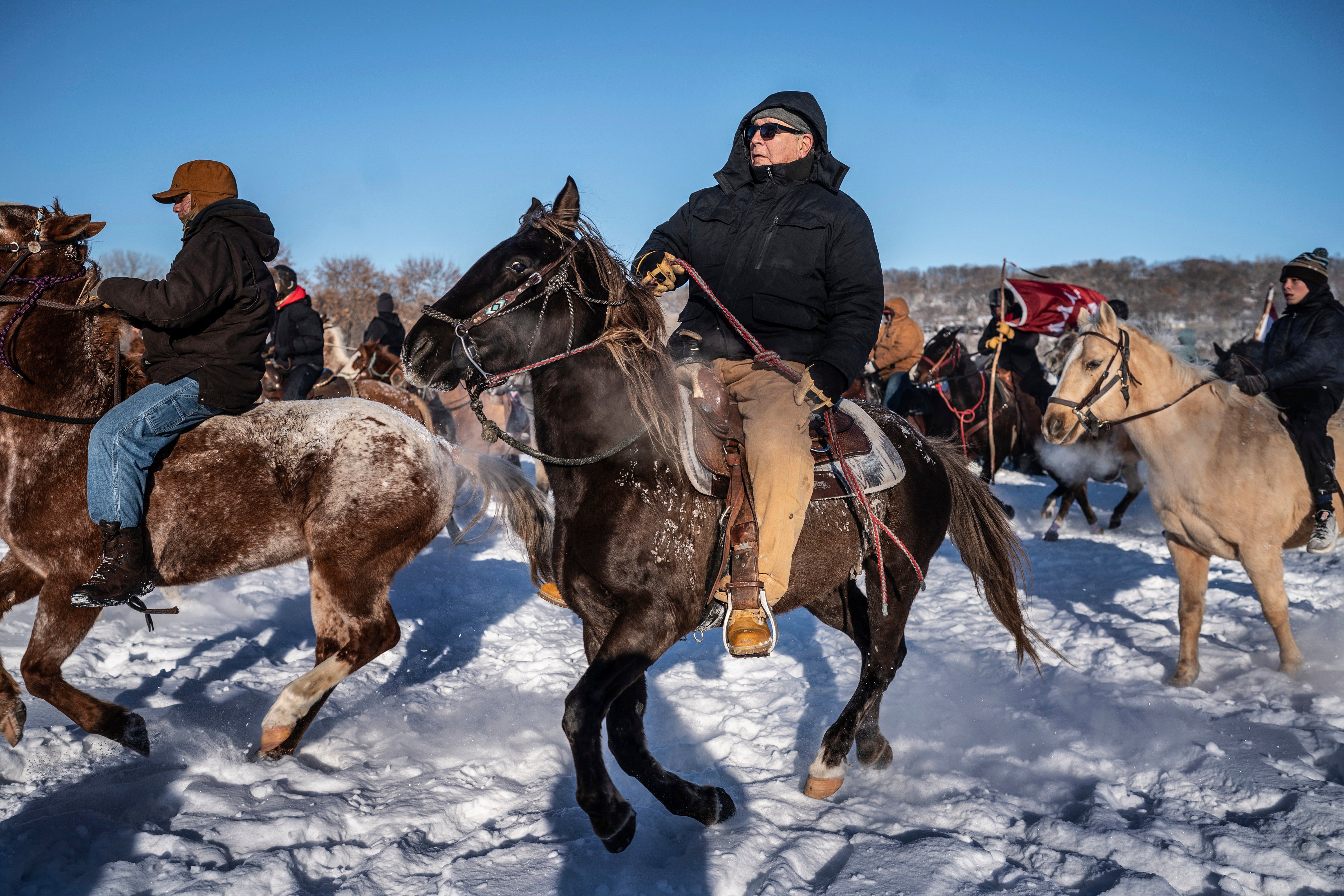Riders complete trip to honor victims of mass execution
Dakota tribal members have completed an annual 330-mile ride on horseback to honor 40 of their ancestors killed in 1862

Dakota tribal members have completed what could be their final annual 330-mile ride on horseback to honor 40 of their ancestors who were killed in the aftermath of the U.S.-Dakota War of 1862.
The Minneapolis Star Tribune reported that the riders arrived in Mankato on Monday morning after setting out from Lower Brule, South Dakota. The riders endured two snowstorms and frigid days. Hundreds of people cheered the riders' arrival in Mankato.
“I felt the ancestors protected us and were with us all the way,” Andrea Eastman said.
The riders have been making the trip each December since 2005 to retrace the route their ancestors took to a reservation in South Dakota. The U.S. government moved tribal members to that state following the mass hanging of 38 tribal members on Dec. 26, 1862, in Mankato. Two others were later captured and hanged.
The executions were designed to punish the tribal members for participating in the war.
Minnesota Gov. Tim Walz was among the crowd that greeted the riders. He apologized for how the Dakota were treated and said teaching indigenous studies in Minnesota schools is a start toward reconciliation.
Some Minnesota schools require ethnic studies. State lawmakers could consider a bill this session to mandate such studies statewide.
This year’s ride will be the last one set up by the original organizers. They say they’re stepping away, but Eastman said the rides could resume some time in the future.
“For this ride, it’s the last,” Eastman said. “But we’ll be coming again. Stay tuned.”